Many nutritionists have preached about the benefits of going vegan, but how beneficial is the diet truly? That’s what a few Stanford Medicine researchers sought to find out, and their results proved to be more surprising than anticipated.
The recent study examined 22 pairs of identical twins and the effects of their dietary habits over the course of eight weeks. One twin was instructed to follow a strict plant-based diet (free of any meat, seafood, eggs and dairy), while the other followed an omnivore diet (including plants, meat and animal products).
“Although it’s well-known that eating less meat improves cardiovascular health, diet studies are often hampered by factors such as genetic differences, upbringing and lifestyle choices,” the study explained. “By studying identical twins, however, the researchers were able to control for genetics and limit the other factors, as the twins grew up in the same households and reported similar lifestyles.”
This is the first time researchers have conducted a study like this. It’s also the first time researchers have attempted to change people’s underlying biochemistry in a short period of time.
“We’re taking a comprehensive approach to this study, looking at body composition, the epigenome or biological clock, the microbiome and the brain,” said Christopher Gardner, a nutrition scientist at Stanford University.
The study is further explored in Netflix’s food documentary “You Are What You Eat: A Twin Experiment.” The four-part series chronicles the study from start to finish and reveals its results at the very end.
Four out of the 22 pairs of twins are featured in the series. They include sisters Pam and Wendy, who both grew up in South Africa and run several food businesses together; brothers Charlie and Michael, better known as the “Cheese Twins”; sisters Carolyn and Rosalyn, a sports relationship coach and high school teacher respectively; and brothers John and Jevon, two recent nursing graduates.
Here are eight of the biggest takeaways from the study:
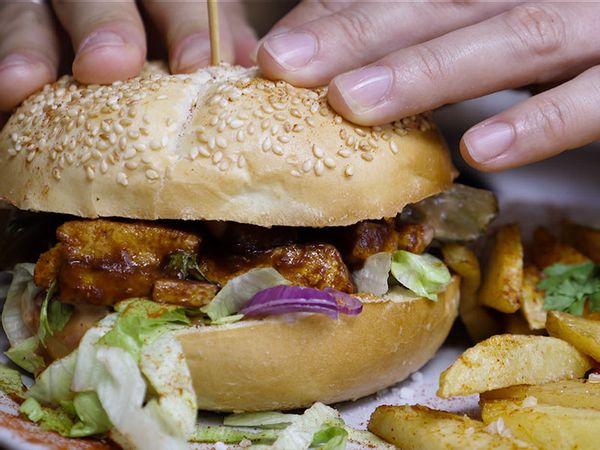 You Are What You Eat: A Twin Experiment (Photo courtesy of Netflix)
You Are What You Eat: A Twin Experiment (Photo courtesy of Netflix)The infamous Standard American Diet, better known as S.A.D., became mainstream in a post-World War II society. Many aspiring soldiers weren’t qualifying for the military because they were too thin and undernourished, explained Christopher Gardner, a nutrition scientist at Stanford University.
“And there was a huge push to get enough calories out there, be as efficient as we could,” Gardner continued. “We saw a growing availability of convenience foods, a lot of low-cost food, which then started to morph into more and more processed and packaged foods. And we saw the same thing with animal-sourced foods. Beef, pork, chicken, eggs, dairy products, cheese.”
The animal agriculture sector quickly industrialized and soon enough, factory farms took over to improve efficiency, said physician and author Michael Greger. Animal products decreased in cost but increased in availability and overall consumption.
Cheap, ultra-processed foods still remain a core part of our food system today. High consumption of such foods have been linked to an increased risk of obesity, hypertension and cardiovascular disease.
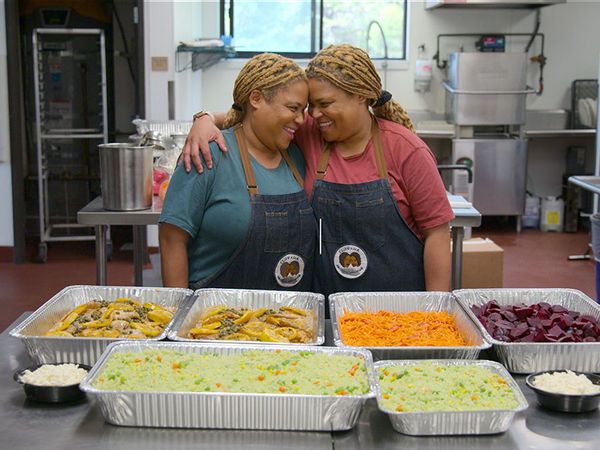 Pam and Wendy in “You Are What You Eat: A Twin Experiment” (Photo courtesy of Netflix)
Pam and Wendy in “You Are What You Eat: A Twin Experiment” (Photo courtesy of Netflix)After eight weeks of following their respective diets, Pam and Wendy both lost muscle mass but increased their fat levels. Pam, who followed the plant-based diet, lost one pound of fat and almost seven pounds of muscle. Her sister Wendy, who followed the omnivore diet, lost almost four pounds of muscle and gained 0.3 pounds of fat.
It was later revealed that both sisters failed to eat all of the food that was provided to them, simply because they felt as though their individual diets contained high amounts of carbohydrates and beans. Because their bodies weren’t obtaining enough energy from food, they instead sought energy from their muscles. Most of the muscle they had built in the gym was also being used to fuel their workouts, thus explaining the loss in muscle mass and gain in fat.
 Carolyn and Rosalyn in “You Are What You Eat: A Twin Experiment” (Photo courtesy of Netflix)
Carolyn and Rosalyn in “You Are What You Eat: A Twin Experiment” (Photo courtesy of Netflix)To assess the diet’s impact on women’s sexual health, a thermograph was used to measure genital arousal in Pam, Wendy, Carolyn and Rosalyn. Temperature changes in each participant’s genitals were recorded while they watched their choice of pornography. The final results found that Pam and Carolyn, who both followed the plant-based diets, had increased genital arousal.
Pam experienced a 371% increase in her arousal compared to her sister, who experienced a 288% hike. Carolyn experienced an astounding 383% increase, while her sister Rosalyn experienced a 212% hike.
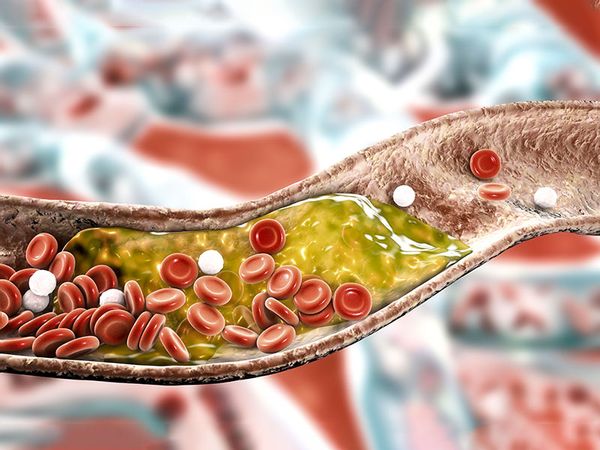 Atheromatous plaque in artery, illustration (Getty Images/KATERYNA KON/SCIENCE PHOTO LIBRARY)
Atheromatous plaque in artery, illustration (Getty Images/KATERYNA KON/SCIENCE PHOTO LIBRARY)A plant-based diet may contribute to lower levels of low-density lipoprotein cholesterol, sometimes referred to as “bad” cholesterol. Over the course of eight weeks, researchers found that LDL cholesterol dropped significantly amongst those who followed a vegan diet.
Carolyn’s LDL levels dropped 12.9%, while her sister Rosalyn’s levels went up slightly 1.7%. High levels of LDL cholesterol can clog arteries and cause heart disease and stroke.
While the omnivores in the study saw their LDL cholesterol remain the same on average, the vegans saw their LDL cholesterol levels drop 10% on average.
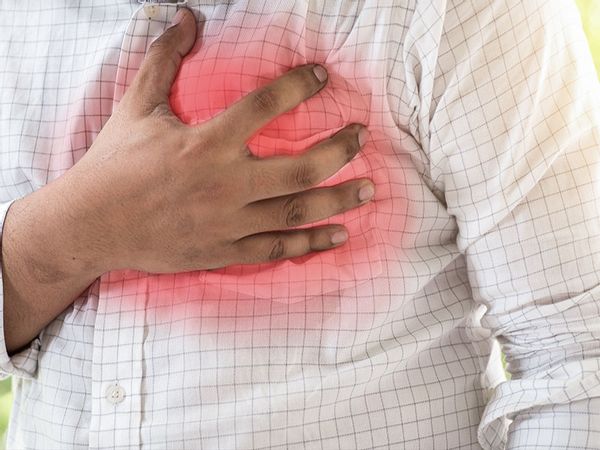 A man having a heart attack (Getty Images/boonchai wedmakawand)
A man having a heart attack (Getty Images/boonchai wedmakawand)Researchers studied the presence of trimethylamine N-oxide, simply known as TMAO, a substance that is produced by the body after meat consumption. TMAO is said to increase unhealthy levels of inflammation and is associated with a higher risk of heart disease.
Expectedly, omnivores had higher levels of TMAO compared to their vegan counterparts. Pam and Wendy’s results revealed that Pam’s TMAO plummeted 350% and remained low while Wendy’s increased 160%.
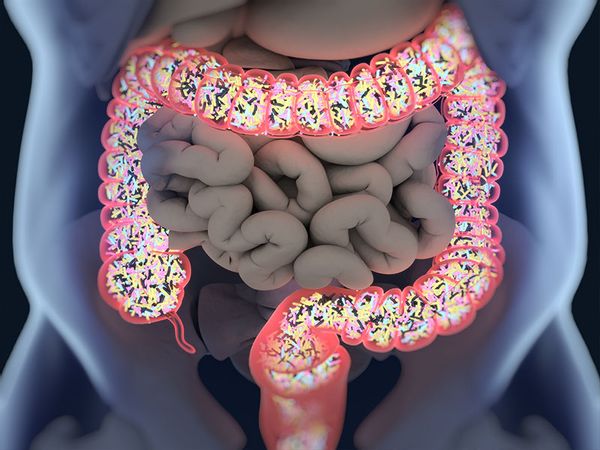 Gut bacteria, microbiome (Getty Images/ChrisChrisW)
Gut bacteria, microbiome (Getty Images/ChrisChrisW)A healthy microbiome – the collection of all the bacteria, fungi and viruses that naturally reside in our bodies – leads to better metabolism, a stronger immune system and better overall health.
Researchers looked at several groups of bacteria, like bifidobacterium, which helps prevent infection and produces vitamins and other vital chemicals. Bifidobacterium increased in twins who followed a vegan diet and remained level in twins who followed an omnivore diet.
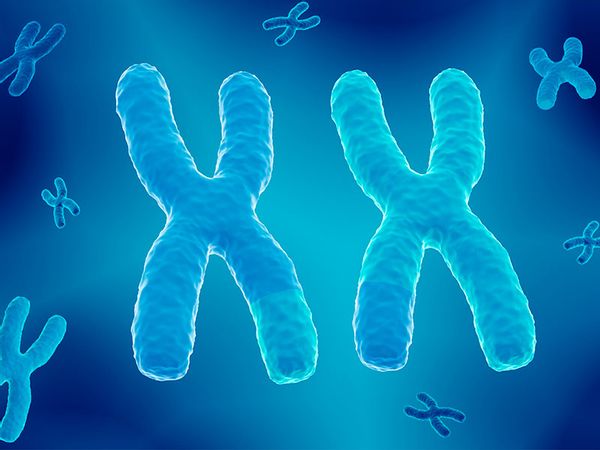 Crossing-over of chromatids, illustration (Getty Images/ARTUR PLAWGO/SCIENCE PHOTO LIBRARY)
Crossing-over of chromatids, illustration (Getty Images/ARTUR PLAWGO/SCIENCE PHOTO LIBRARY)Researchers differentiated between biological age and chronological age in their study. Biological age refers to how old your cells and tissues are, while chronological age is the number of years you’ve been alive. Biological age was determined based on the lengths of each twin’s telomeres, the protective caps on the ends of DNA strands. Lengths of telomeres decrease as we age, so longer telomeres signify better health and a younger biological age.
At the beginning of the study, each twin had telomeres that were the same length. After eight weeks, however, the vegan twins had longer telomeres compared to their omnivorous twins, whose telomeres remained unchanged. That means the vegan twins were considered biologically younger than their omnivore twins.
 Michael, Charlie and Miyoko Schinner in “You Are What You Eat: A Twin Experiment” (Photo courtesy of Netflix)
Michael, Charlie and Miyoko Schinner in “You Are What You Eat: A Twin Experiment” (Photo courtesy of Netflix)Although none of the twins have fully gone vegan, many said they are committed to eating more plant-based meals in their regular diets.
“For me, plant-based eating is the way to go,” said Carolyn. “I feel healthier . . . If I’m gonna put crap into my body, then I’m gonna feel like crap. But if I do the opposite, it’ll be enhanced.”
As for Pam and Wendy, the sisters have been decreasing their intake of animal products. When it comes to eating meat, “less is more,” Wendy said.
“Change starts with one person,” Pam added. “With making food for other people, we realize that we don’t need so much meat.”
Michael expressed similar sentiments, saying he’s “cut out meat for the most part.”
“I think there are just too many benefits to cutting it out and not enough benefits to keep it in,” he said.
“You Are What You Eat: A Twin Experiment” is currently available for streaming on Netflix. Watch a trailer for it below, via YouTube:
Read more
about veganism:

